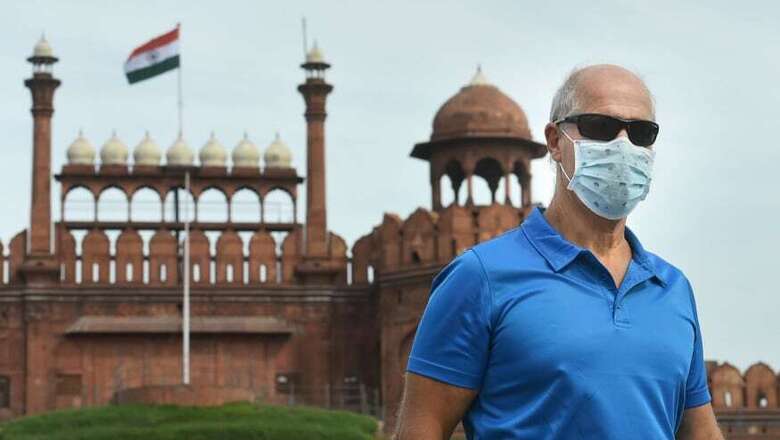
views
New Delhi: As the novel coronavirus infection affecting thousands across the world was declared a pandemic by the World Health Organisation (WHO), health expert K Srinath Reddy suggested that India should focus on preventing its spread through the entry of travellers and foreign visitors.
Reddy, the president of Public Health Foundation of India, said health systems across the world were not prepared for the virus. “Not for the rapidity with which it spread but also the lack of familiarity with how severe it was in terms of virulence,” he explained.
“India's health system too has been naive to this virus but the focus at this point in time should be to try and prevent too many new cases from emerging specially through the entry of returning travellers or foreign visitors, so that we don't have to put out a thousand fires at once,” he said.
He went on to emphasise on the need to protect the most vulnerable sections, which include the elderly, those suffering from other chronic diseases and the healthcare professionals, in case the virus spreads to become a community infection.
“Healthcare professionals are also at a great risk because of a high viral load being repetitively dumped at them and therefore that level of exposure is going to put them at risk even if they are young,” he said.
Attempting to assuage the fears of people, he said, “The others can actually do without going to the hospital and can be home quarantined and treated. We must keep hospitals equipped to meet contingencies but the majority might not require hospitalization.”
Reddy further clarified that so far no vaccine has been developed to treat the infection even as there are reports of using anti-Ebola or anti-HIV drugs.
“Some of the drugs used against Ebola and HIV have been attempted. It is a matter of faith now because drug trials have not been conducted in a systematic way. These are anecdotal reports that are emerging of some of these medicines being effective. But without having had systematically designed drug trials, it is difficult to bet on them.”
“It is difficult to say that we will have a proven vaccine or a proven drug before one and half years because not only the development but testing and clinical trials are going to take that much time,” he said.
On the measures that need to be taken in order to prevent the virus from spreading, Reddy said, “We do not how many people will affected from a single infected person. We need to prevent people who have a chance of contracting the virus from entering the community. If they have infected others, we have to find out and we have to be on the guard against new entrance.”
He called for immediate steps to contain the virus by quarantining people. “As more cases emerge we have to prepare for all contingencies,” he said.
"As we prepare our health systems to meet large number of cases, we have to shut the doors to those infected. We are tightening up resources in a manner in which we can deal with the epidemic.”
















Comments
0 comment